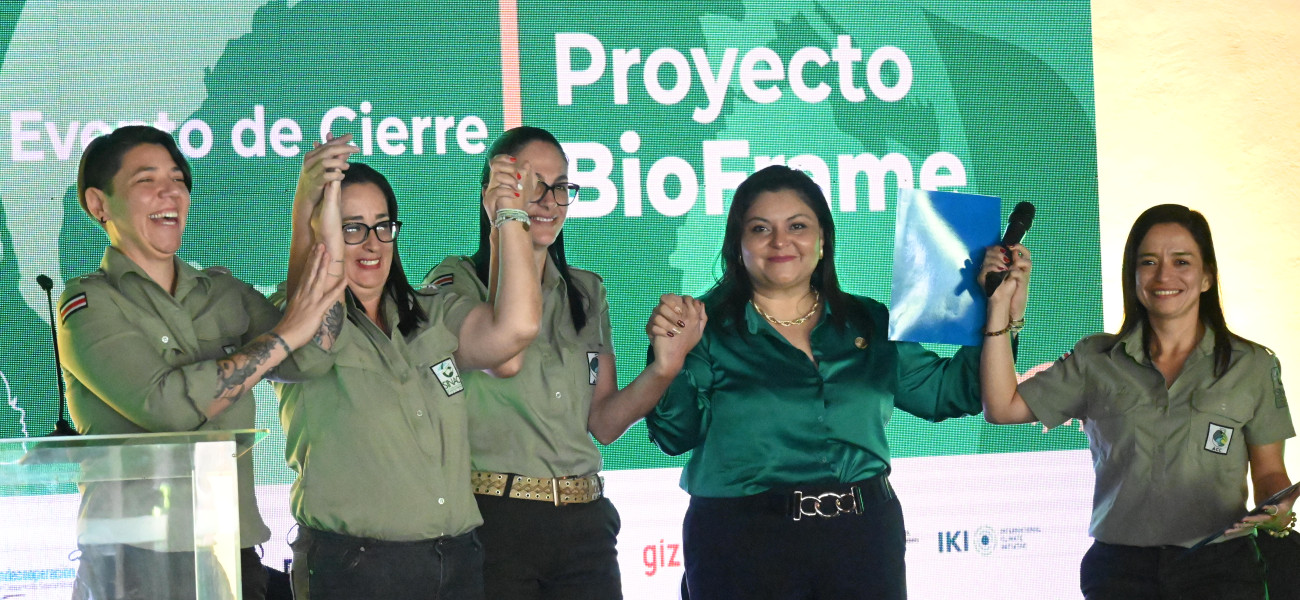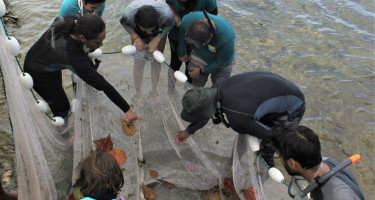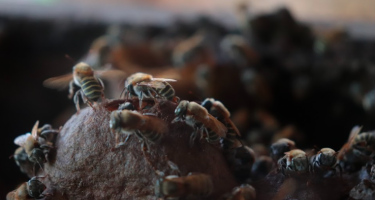The BioFrame Project promoted solutions that conserve nature in cities
The project "Design and first implementation steps of the Global Framework for Biodiversity (BioFrame)" promoted four green space initiatives in the Great Metropolitan Area.

Women parkrangers and minister for the Status of Women, Cindy Quesada, during the event. © BioFrame
Contributing with solutions that improve urban wellbeing and contribute to conserve urban biodiversity and ecosystem services in the Greater Metropolitan Area (GMA) was the objective of the global BioFrame project funded by the Federal Ministry of Environment, Nature Conservation, Nuclear Safety and Consumer Protection (BMUV) through its International Climate Initiative (IKI) and implemented in partnership with the Ministry of Environment and Energy (MINAE) and Fundecooperación.
"The technical cooperation in initiatives that promote conservation and human wellbeing enables communities and societies near the intervention points to be empowered and also to be taken into account, which is very important. In addition to contributing to the conservation of biodiversity and reducing the impact on nature, we are pleased to highlight that these initiatives are an example to others," said Alexandra Herr, representative of the German Embassy in Costa Rica.
The project through the Green and Biodiverse Urban Recovery Fund (FRUV, for its acronym in Spanish) promoted the implementation of urban biodiversity and green business concepts such as the establishment of a trail that promotes wellness and connection with nature in the area of La Libertad Park.
Another initiative was the development of a community biological corridor and the use of garden waste to promote a circular economy initiative in the community of San Rafael de Santa Ana. This initiative planted 640 native trees in riparian areas, produced 3000 kilos of organic soil and trained 10 local women in the production of organic soil from garden waste.
The third initiative strengthened the technical and commercial capacities of a women's cooperative called "Cooperativa Toyopan" where these female entrepreneurs work in the production of stingless bee honey in Montes de Oca and now have 50 hives in production, 36 families linked to the initiative and agreements with 4 organizations for the sale of honey.
The fourth initiative installed two green bus stations that incorporate ecological design and safety elements for the diversity of users. The prototype was proposed and developed by a Rural Community Road Maintenance Microenterprise in the community of Cipreses de Oreamuno, in Cartago.
In addition, the project cooperated with the initiative of the National System of Conservation Areas (SINAC- MINAE) called "From Agreement to Action: Rebuilding Biodiversity from the Perspective of Women and Girls", which worked on a road map for women park rangers to achieve gender equality in biodiversity work.
"Costa Rica is a country that has stood out for protecting the environment. It is a country that is also betting on the contribution of women as caregivers of life, a title that entails a job that is often very sacrificing, not properly remunerated and that is our next big goal: that this recognition comes linked with opportunities, to progress in life and have a dignified life which will continue helping us to close those gaps that still exist today, "said Cindy Quesada Hernandez, Minister for the Status of Women.
- Country: Costa Rica
- Project:
- Contact:


